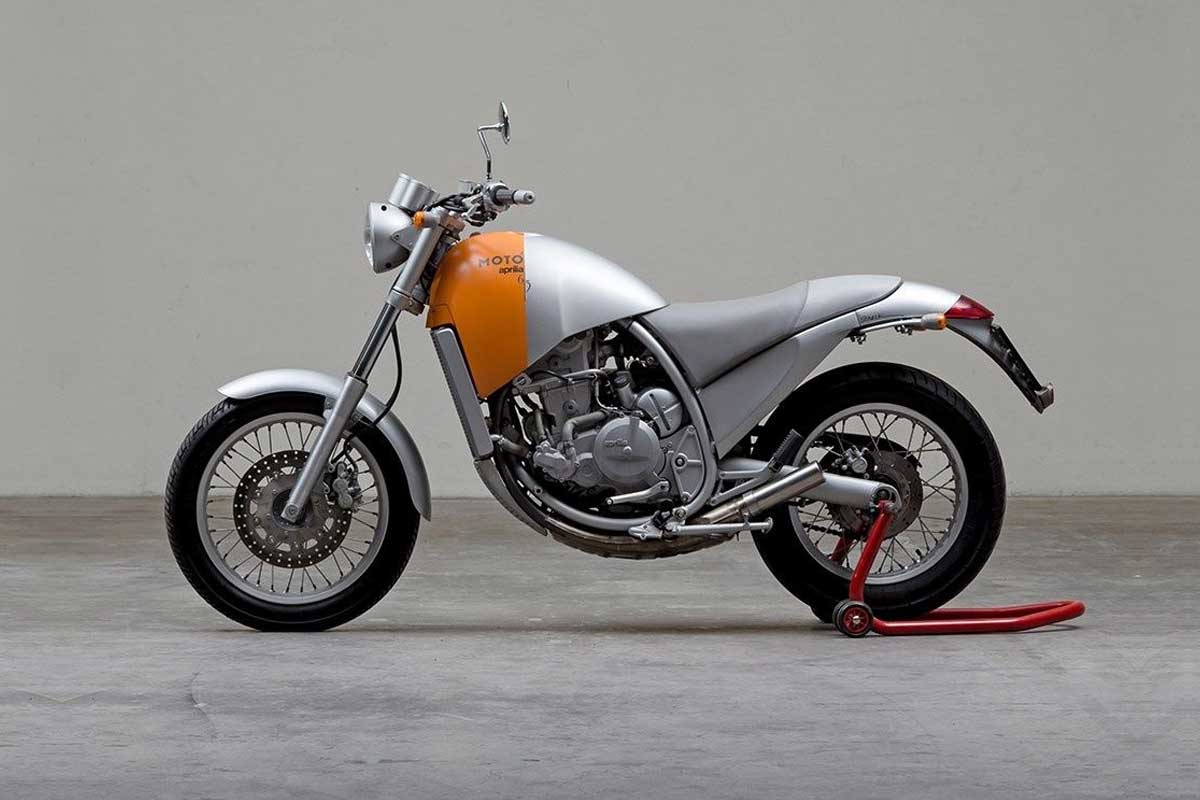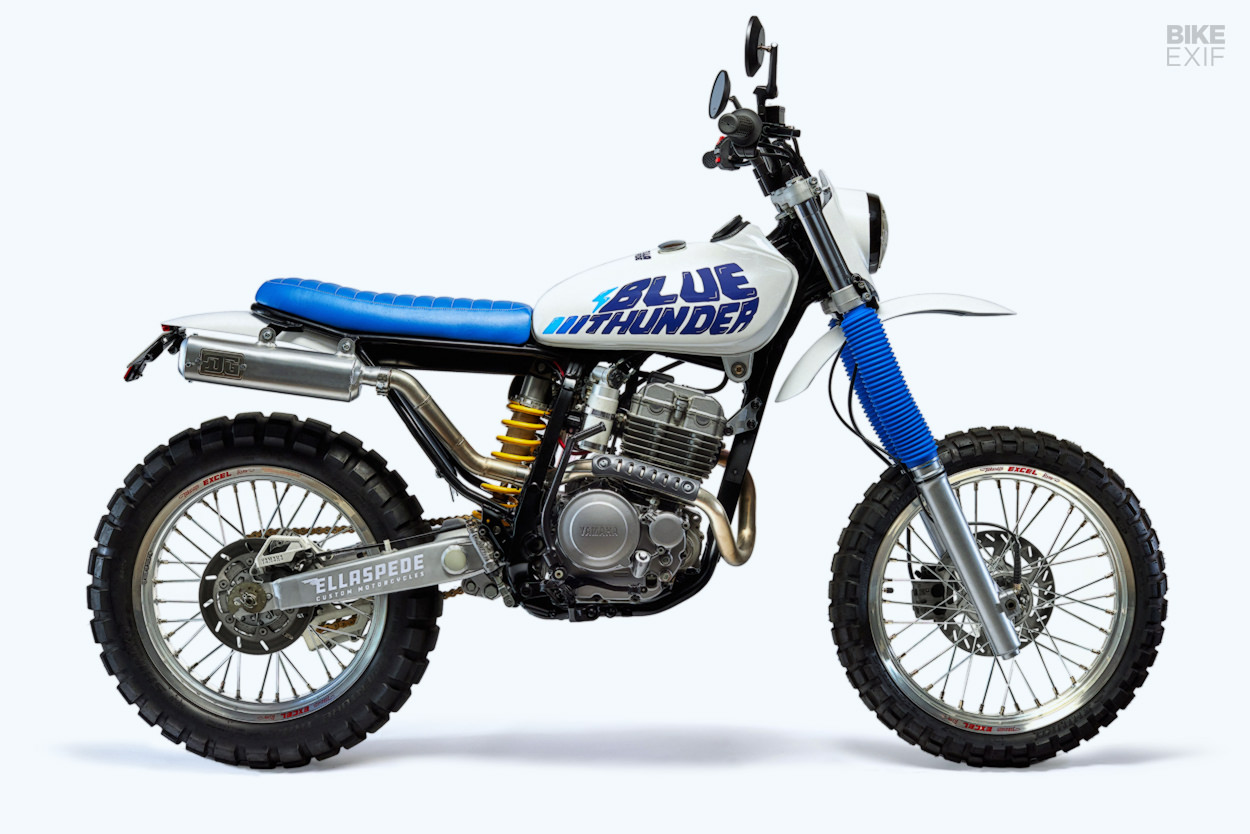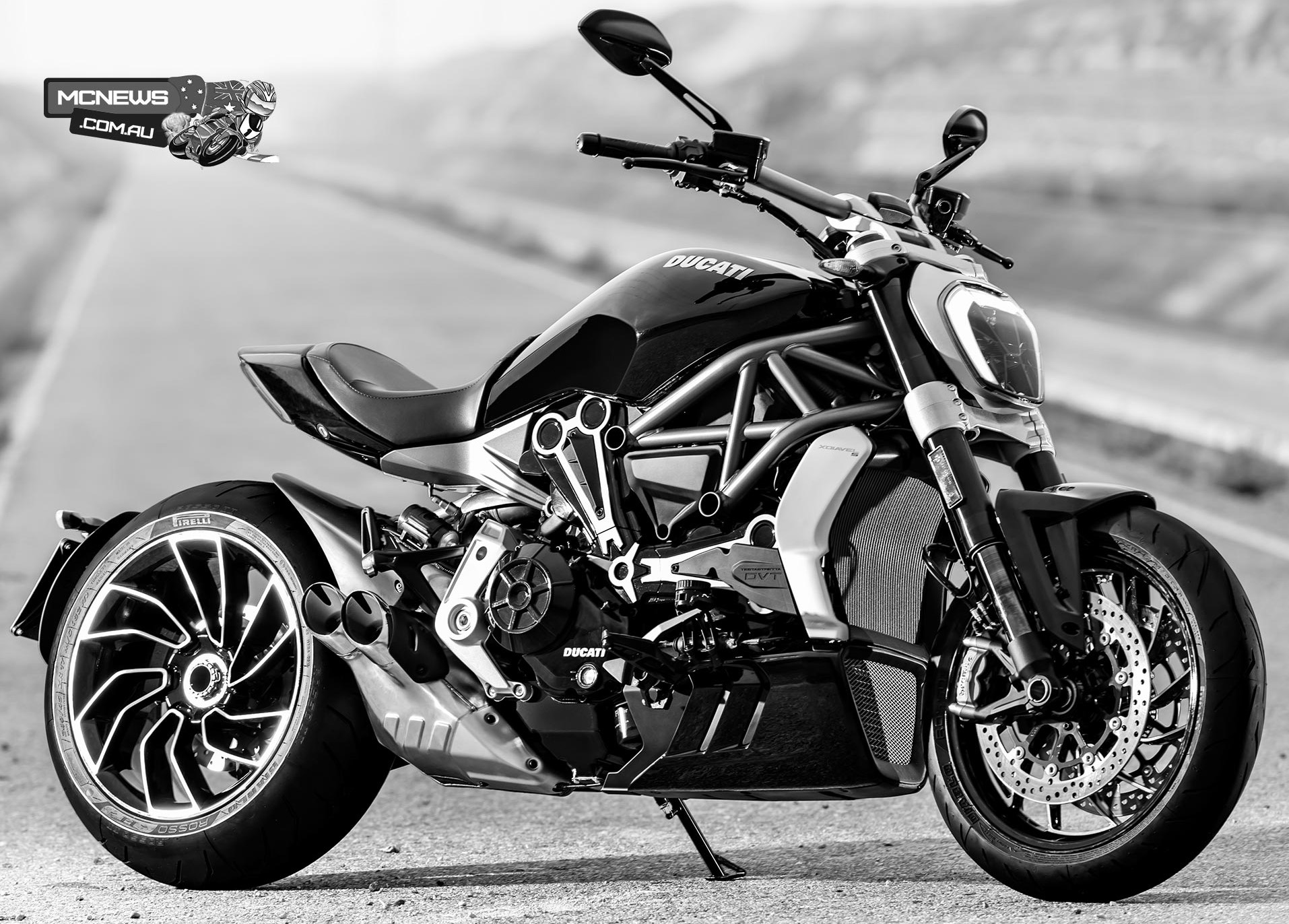Motorcycles are fantastic machines, but not all motorcycles were created equal. Over the years, there have been a few questionable models unleashed unto the world. Fortunately, the West has been spared some of the truly shocking models thanks to stricter safety compliance measures and stronger economies that gave riders the purchasing power to buy real quality machines. However, there have been a few renegades that have slipped through the net.
Calling any motorcycle “the worst” is a little unfair. Generally, if it has two wheels and an engine, it’s hard to be negative about it. Putting together a list of the “worst” anything is difficult enough, but the “worst” motorcycles almost feel like a direct contradiction in terms. If it has two wheels and you’re not enjoying yourself, you’re obviously not doing it right.
Over the years, we’ve all ridden some questionable machines. You know the ones. The ones where you have to plan your braking about a week in advance, or the ones that vibrate the threads on your mirrors loose, and those with engines that won’t stop leaking. Technically, they’re all terrible motorcycles, but it’s hard to condemn them because of those little issues.
Irritating features that annoy one rider may be charming little quirks to another. Taste is subjective, so don’t be offended if your beloved finds its way on this list. But should we formulate a list based on taste alone?
Yes, probably.
If you try and apply a scientific method, too many great motorcycle models will have to be included. Let’s take a look at manufacturing defects and faults. If we rank a motorcycle by the number of recalls it has, then we’d have to include the likes of the BMW R1200 GS—a model that forced BMW to recall approximately 160,000 units. Technically, it’s a death trap or was before the recall solved the issue. But it’s also one of the best-selling motorcycles out there, so it’s hard to call it one of the worst ever made.
So, with that in mind, here’s a list of 5 of the worst mass-produced motorcycles sold in western markets—in our humble opinion.
Kawasaki H2 Mach IV
When it comes to “worst” motorcycle lists, the big Kawasaki two-strokes of the late 60s and early 70s are always included. Funnily enough, there also included in a lot of “best” lists too. That’s largely to do with their dual nature. They were stupendously fast. They were also stupendously dangerous. While performance is a very important metric to judge a motorcycle by, it’s not ideal if the motorcycle in question had a habit of throwing riders down the road at the same time.
The larger Kawasaki H2 Mach IV was a 750cc two-stroke machine with a fantastic triple-cylinder engine. At the time, it was the fastest thing on two wheels. Unfortunately, the engine was simply too fast for the frame to handle. It flexed under stress, causing severe handling issues, and no number of steering dampers could contain it.
The short swingarm forced the front wheel into the air with very little encouragement required. In the corners it was an animal, and not in a good way. In short: it was just too powerful for the rest of the chassis to control.
In professional hands, it was a cutting-edge racing motorcycle that could dominate the world’s roads and circuits. But unfortunately, most riders aren’t professionals with real race training, and it caused a lot of accidents. So much so that the original Kawasaki H2 was known as the “widow maker.”
As the original Widow Maker, it’s hard not to rate the Kawasaki H2 Mach IV as one of the best motorcycles ever produced, but also, one of the worst motorcycles ever produced too.
Honda CX 500

The Honda CX 500 was first introduced in 1978. It was a handsome looking roadster with a number of interesting and pioneering quirks. It was liquid-cooled. It could only start with electric ignition. And it had a shaft drive. On paper, it was meant to be an affordable, economical, low-maintenance machine. And it was if you could overlook some of its design faults.
The most striking feature of the CX 500 is its liquid-cooled longitudinal OHV 80° V-twin engine, which gives it a similar nature to a Moto Guzzi. Now, anyone that knows about Moto Guzzis will tell you that they do suffer from serious vibration issues. The modern ones are fine, but older ones certainly deliver in the tremor department. Honda should’ve seen Guzzi’s issues and opted for another engine configuration, but even if they did, the CX 500 had more than vibration issues.
Riders had quite a few other complaints about the CX 500. For starters, the engine was known to have an unusual crankshaft rotation, which could drastically affect the handling, pulling the bike in a certain direction when decelerating. It also felt heavy at the front, especially at low speeds. And finally, the drive shaft had been known to lock rear wheels if downshifts were engaged with a little too much enthusiasm.
Despite the engineering issues, the CX 500 actually sold surprisingly well. Even today, CX 500s are quite sought after. Unfortunately, the issues raised at the time were enough for Honda to pull the plug on the model. 1983 was the
CX 500’s last year—only five years after the model was first launched.
Harley-Davidson XR1200

This one might be a little unfair. There are plenty of Harleys worthy of this list—and that’s not Harley bashing, because they’ve got plenty of top-notch models. Any company with such a long history has to crank out a lemon every now and again. The 2008 XR1200 is one of those lemons. Here’s why.
On paper, the XR1200 has a lot of promise. It’s an up-rated Sportster with flat-track pretensions, modern hardware, real suspension, and plenty of power and performance. On paper, it’s a motorcyclist’s wet dream. In reality, the result didn’t quite live up to the expectations.
Now there was nothing dangerously wrong with the XR1200, it’s just that nothing really seemed to work with it. As a sports-inspired machine, it was seriously underpowered. It looked like it should be light and nimble, but instead, it was heavy and clumsy. And then there’s the overall look. It was designed to look like a bigger XR750, and it didn’t quite pull it off. That’s the worse part about it: it really could’ve been something amazing. Instead, it was a flop.
The failure isn’t just in our heads either. It didn’t sell well and it struggled to find its place in the market. It couldn’t match cheaper and better performing naked roadsters, and it didn’t appeal to Harley-Davidson’s core demographic either. It’s a shame really because it really could’ve been something fantastic. Close, but no cigar.
Fast forward a few years, and you’ll see how Indian managed to take the same idea and make a success of it in the form of the FTR1200.
Aprilia Moto 6.5

The Aprilia Moto 6.5 is another one of those opinion dividers. Sure, it’s not the worst motorcycle ever made in terms of engineering and performance but just look at it. Seriously, take a long look at it and try to find something good to say about it. Ok, the mirrors look nice and the wheels are in the right place. As for everything else? No thank you, Aprilia.
This bizarre looking thing is the product of a collaboration between Aprilia and French designer Phillipe Starck. Was it a design success? It depends on how you measure success. Is it aesthetically pleasing in any way? No. But has it left a lasting impression? Clearly, since we’re still talking about it decades later. If nothing else, visually, it’s an unforgettable motorcycle.
The bike’s ugly looks are the only thing going for it though. It’s weird looking enough to be remembered, but everything else is completely forgettable. It features a boring chassis with a boring engine: a 649cc single-cylinder Rotax lump that’s only good for 43 horsepower and 39.1 lb-ft of peak torque. In short: it doesn’t deliver anything exciting worth losing your street-cred over.
Fortunately, this little design exercise didn’t sink the company. The current Aprilia motorcycle line-up features nothing but attractive and advanced machines. Are we being unfair though? Could aesthetics alone be enough to label this otherwise vanilla motorcycle as one of the worst mass-produced motorcycles sold in Western markets? Yes: it really is that awful to look at.
Honda NX 650 Dominator

The Honda NX 650 Dominator was another Honda flop, in North America at least. Having another Honda on the list doesn’t make Honda a bad brand. The brand has had a prolific production history, delivering high volumes of motorcycles across different niches, so it stands to reason that a few flops slip through the net. The NX 650 Dominator is one of them.
First introduced in 1988, the Dominator was designed as a dual-sport machine that could perform well both on and off-road. In truth, it wasn’t that good at either. Now, the model actually enjoyed a fairly long tenure, spanning from ’88 to 2003 and throughout its life some Dominators were good, but some were just awful. The earlier models from the late-80s to the mid-90s were arguably the worst Dominator years out there.
Aside from having a very uncomfortable saddle that didn’t lend itself to either street or trail riding, the Dominator had a number of flaws that made it one of Honda’s most notable failures. It wasn’t fast, with a top speed south of 100 mph. It wasn’t economical, with an average mpg of around 41 mpg. And lastly, it had unimpressively frequent service intervals, every 1850 miles (ish), and servicing wasn’t cheap.
Toward the late-90s, the NX 650 turned a corner and became a mild sales success in Europe. In the US, however, there was absolutely no love for the Dominator. After its launch in 1988, it was axed from the line-up after two short years. It may not be the worst motorcycle ever made, but it certainly wasn’t a sales success in North America.




